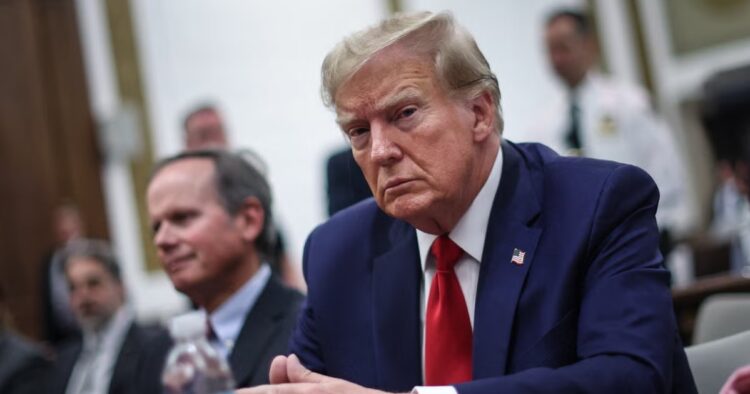Former President Donald Trump faced a significant legal setback as a federal appeals court dismissed his immunity claim, opening the door for potential criminal prosecution. The ruling came after Trump asserted that as President, he should be immune from prosecution for actions he took while in office. However, a three-judge panel rejected this argument, stating that Trump, now a private citizen, must face legal accountability like any other individual.
In a scathing rebuke, the judges declared that Trump lacked any legitimate authority to defy federal criminal law during his time in office. This decision effectively strips away the special protections Trump sought, making him subject to prosecution for his alleged involvement in criminal activities, including attempts to influence the outcome of the 2020 election.
Trump’s response to the ruling was swift and vehement. He denounced the decision as “nation-destroying,” emphasizing the necessity of presidential immunity for the effective functioning of the country. Trump warned of dire consequences if presidents were not shielded from legal scrutiny, claiming that future leaders would be paralyzed by fear of political retribution.
The ruling marks a significant blow to Trump’s legal defense strategy, which relied heavily on the assertion of presidential immunity. With this defense rejected, Trump’s legal troubles intensify as he faces allegations of fraud and election interference. The decision also paves the way for Special Counsel Jack Smith to proceed with prosecuting Trump on multiple felony charges related to his conduct while in office.
Despite Trump’s vow to appeal the decision, legal experts anticipate a challenging road ahead for the former president. The case may ultimately reach the Supreme Court, where the balance of power tilts in favor of conservatives. However, Trump’s chances of success remain uncertain in light of the appellate court’s resounding rejection of his immunity claim.
The implications of this ruling extend beyond Trump’s individual legal battles. It sets a precedent for future presidents, clarifying that they are not above the law and can be held accountable for their actions. The decision reinforces the principle of equality before the law, affirming that even the highest office in the land does not grant immunity from criminal prosecution.
In the aftermath of the verdict, Trump’s eldest son, Donald Jr., echoed his father’s sentiments, decrying what he called “partisan hackery” in the legal system. However, the court’s decision reflects a commitment to upholding the rule of law and ensuring accountability, regardless of political affiliations.
As the legal saga unfolds, all eyes turn to the Supreme Court, where the fate of Trump’s immunity claim may ultimately be decided. In the meantime, the ruling stands as a landmark assertion of the judiciary’s independence and its role in safeguarding the integrity of the American legal system.

















Comments